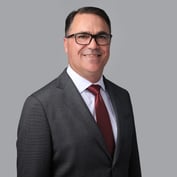What You Need to Know
- Low fees are not necessarily a sign of sainthood.
- You need to earn solid fees by doing a great job.
- Intangible benefits are worth something, too.
“The bitterness of poor quality remains long after the sweetness of low price has been forgotten.” —Benjamin Franklin
Selling on price has been a staple of commerce for quite a while. I imagine old Ben thinking about carriage builders, silversmiths, furniture makers, and maybe even kite makers! But whatever he had in mind when he made that statement about 250 years ago was true for the artisans and craftsmen thousands of years before and hundreds of years after. Consumers like a good deal, but they despise being cheated as the result of shoddy quality.
Even the most frugal among us are willing to pay a little extra for something that will not fall apart after the first use. Even if we are not impressed with status, we want a product or service that does not make us wish we had never spent our money for it. We think about that when we purchase our houses, our cars, our clothes, our furniture, our jewelry, our vacations, our personal care, our anything.
We think this way. Our clients think this way, too. If our clients also feel this way, is it likely they would generally put fees at the top of the list of things to consider when choosing, or staying with, an advisor? The logical answer is “No.” And, for most of our clients, that is probably still true. But, for a growing number of consumers, fees are a frequent and early topic of conversation. Why?
Indeed, the regulatory climate and the very appropriate requirements for transparency and disclosure contribute to the discussion, but that discussion would still be minimal. The main reason for consumers’ heightened awareness of fees is that there are highly effective advisors/ marketers who have made fees the number one issue. In the classic “David vs. Goliath,” “Us vs. Them” pandering, they promise to protect the consumer from “those other guys” and their predatory practices. How? By charging fees so low, they should be considered for sainthood! So, how do we re-frame the conversation?
We start telling the truth about fees.
We show the value of our service and performance. (By the way, if our service and performance are only average, they probably should pay less somewhere else.)









 May 11, 2021 at 02:30 PM
May 11, 2021 at 02:30 PM












